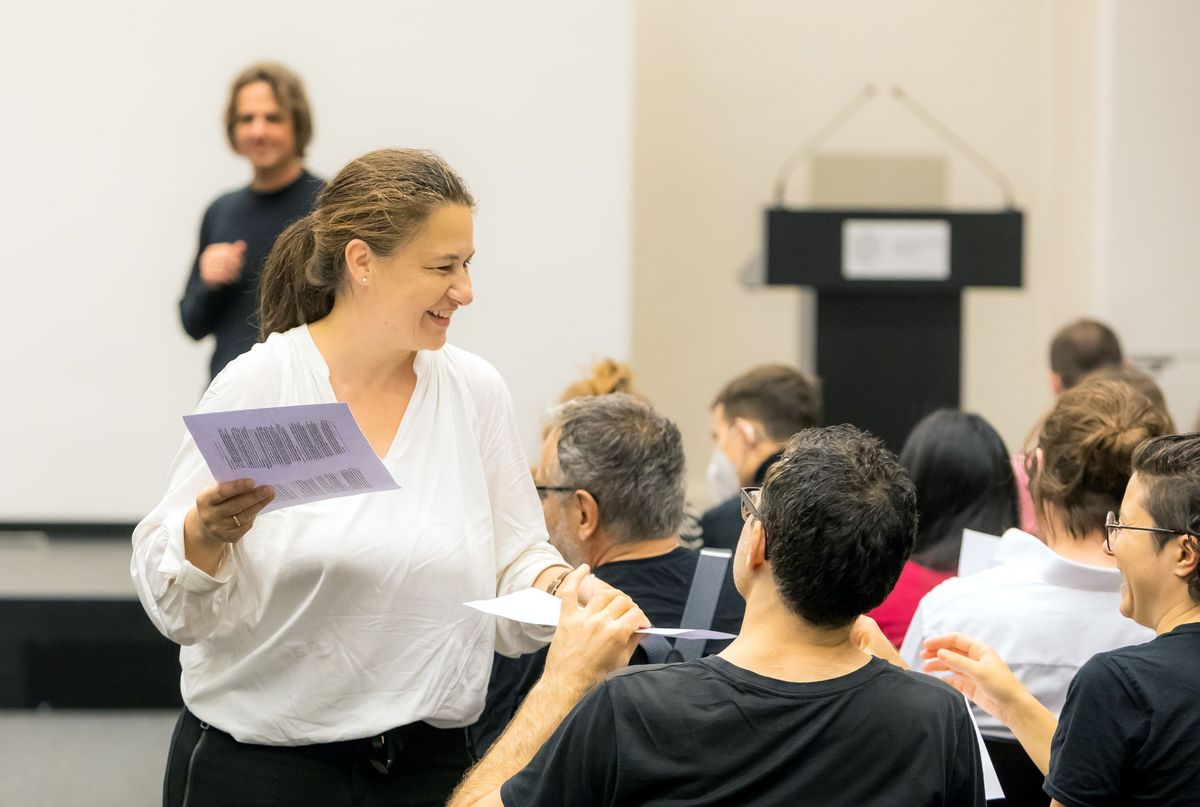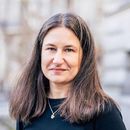The Research Center for Analytic German Idealism at Leipzig University, also called FAGI (Forschungskolleg Analytic German Idealism), is the lynchpin for an internationally-oriented network for philosophy. The FAGI was directed by Professor Andrea Kern (Leipzig) and Professor James Conant (Chicago) until the summer of 2022. Since the fall of 2022, the leadership has been in the hands of Professor Andrea Kern. Detailed information can be found below.
About Us
The Research Center for Analytic German Idealism (FAGI) is an internationally oriented research center at Leipzig University. It initiates, structures, and brings together activities in research and teaching on German Idealism, from Kant to Hegel, in an analytical perspective. It is based on a twofold programmatic idea: On the one hand, that the philosophy of German Idealism should itself be understood as analytical philosophy; on the other hand, that German Idealism should be developed as both the standard of analytical philosophy, and the point at which the very idea of analytical philosophy, as a distinct mode of inquiry, vanishes. In so doing, it aims to assert the importance of German Idealism for the critical development of the fundamental concepts of our self-understanding in all areas of common life.
The FAGI organizes a variety of events, through which a lively exchange of scholarly work revolving around individual research topics is made possible. These include annual conferences and regular colloquia, as well as in-depth seminars led by visiting professors and scholars.
FAGI also supports research projects for both short and long stays abroad by doctoral students, postdoctoral fellows, and professors.
There are close working contacts with the philosophical institutes in Chicago, Patras, Potsdam, Tel Aviv, Frankfurt, and UCL, among others.
In addition, a number of academic publications are produced within the framework of FAGI - such as the book series "Analytical German Idealism", published by Suhrkamp Verlag.
Mission
The FAGI unites analytical philosophy with German Idealism---understood both as historically rooted traditions of thought and as contemporary forms of current, philosophical research practice---in three ways.
First, it facilitates dialogue between researchers working on classical German philosophy and those working within the tradition of analytical philosophy.
Second, it facilitates a historically oriented investigation of both the common origins and the subsequent unities and differences between the two traditions.
Third, and most important, it provides a venue for exploring the influences of the two traditions on each other, especially as reflected in the work of those contemporary philosophers on both sides of the Atlantic who resist clear classification in either tradition.
Research at the FAGI
Research at the FAGI is multifaceted. It includes work from all systematic areas of philosophy. But above all, it develops forms of philosophical reflection that unite research in these areas of contemporary philosophy with a philosophical understanding which is gained from reappraising the achievements of the historical milestones in the German Idealist tradition.
FAGI Advisory Board
- Prof. Dr. Matthew Boyle (Chicago)
- Prof. Dr. Dina Emundts (Berlin)
- Prof. Dr. Paul Franks (New Haven)
- Prof. Dr. Hannah Ginsborg (Berkeley)
- Prof. Dr. Johannes Haag (Potsdam)
- Prof. Dr. Patricia Kitcher (New York)
- Prof. Dr. John McDowell (Pittsburgh)
- Prof. Dr. Christoph Menke (Frankfurt/M.)
- Prof. Dr. Robert Pippin (Chicago)
- Prof. Dr. Sebastian Rödl (Leipzig)
- Prof. Dr. Tobias Rosefeldt (Berlin)
- Prof. Dr. Pirmin Stekeler-Weithofer (Leipzig)
- Prof. Dr. David Wellbery (Chicago)

